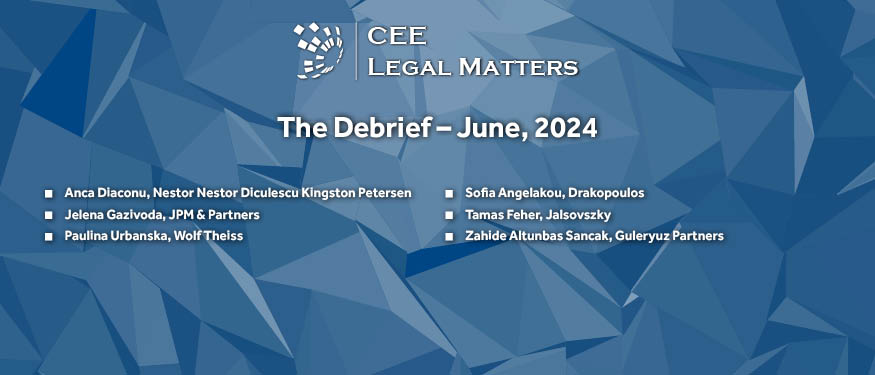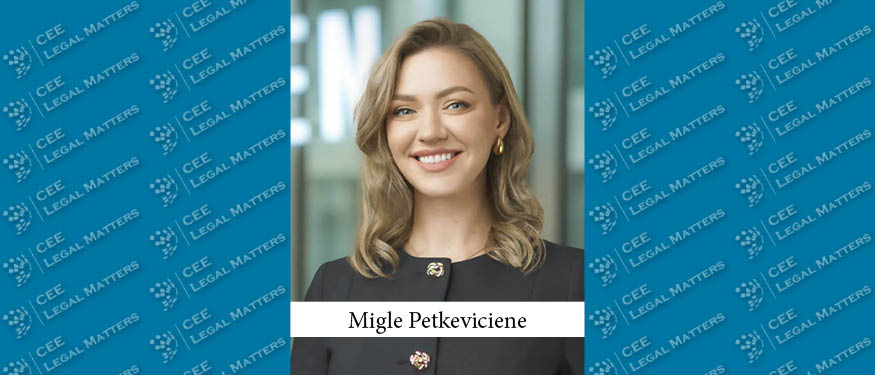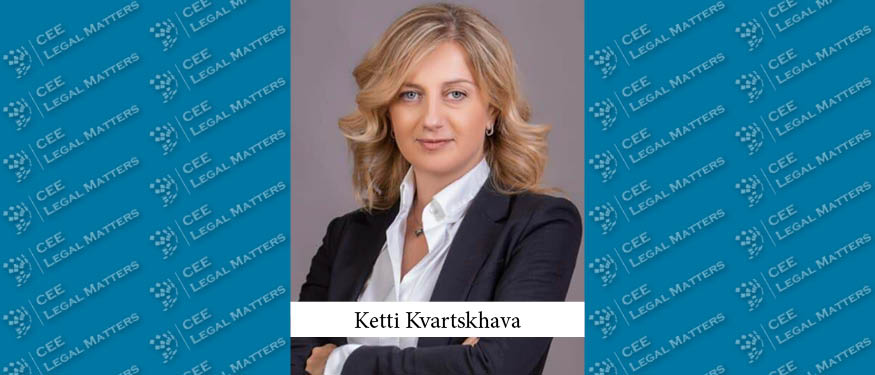In The Debrief, our Practice Leaders across CEE share updates on recent and upcoming legislation, consider the impact of recent court decisions, showcase landmark projects, and keep our readers apprised of the latest developments impacting their respective practice areas.
This House – Implemented Legislation
Drakopoulos Senior Associate Sofia Angelakou reports that Law 5100/2024 entered into force on April 5, 2024, in Greece, inter alia transposing the EU Minimum Tax Directive. The law “introduces two interlocking rules, collectively referred to as the ‘GloBE rules’ through which an additional amount of tax (a ‘top-up tax’) shall be collected each time that the effective tax rate of a multinational enterprise group (MNE) in a given jurisdiction is below 15%,” Angelakou points out. “Greece opted to apply a qualified domestic top-up tax to entities or permanent establishments that are members of an MNE or of a large-scale domestic group and are located in Greece, to joint ventures and affiliates located in Greece, as well as to minority-owned constituent entities located in Greece and certain other entities, as these are further determined in the law.”
“The law applies to constituent entities located in Greece that are members of an MNE or of a large-scale domestic group which has an annual revenue of EUR 750 million or more in its ultimate parent entity’s consolidated financial statements in at least two of the four fiscal years immediately preceding the tested fiscal year,” Angelakou explains. “It should be noted that the law does not apply to governmental entities, international organizations, non-profit organizations, pension funds, and certain investment entities, as these are defined in Article 3 of the law. All entities falling within the scope of the law are obliged to comply with its provisions as well as with the reporting obligations provided therein, including the obligation to file a top-up tax information return and a top-up tax return with the Greek tax authorities.”
This House – Reached an Accord
Guleryuz Partners Partner Zahide Altunbas Sancak points to a new amendment related to unlicensed electricity production in Turkiye. “On May 14, 2024, Turkiye enacted new amendments to the Regulation on Unlicensed Electricity Generation in the Electricity Market, published in the Official Gazette No. 32546,” Altunbas Sancak reports. “These changes aim to update the regulation in unlicensed electricity production, particularly for small businesses and individual consumers employing smaller-scale systems like solar panels.”
Among the key novelties, Altunbas Sancak highlights that the “update allows consumers under temporary subscriptions to offset their electricity consumption with production from all of their facilities rather than calculating the offset for each facility separately. This change is particularly beneficial for small-scale producers, as it enables more flexible energy management and billing.” She adds that “the regulation also introduces greater flexibility for wind energy projects. If an application is initially rejected due to technical reasons, the applicant is now granted a 60-day period to request a site change or revision. This can be done as long as the connection remains within the same transformer station for the distribution level or the same transmission region for transmission-level connections.” Additionally, “the period to apply for a connection agreement has been extended from 180 days to one year. This extension allows producers more time to align their project timelines with regulatory requirements, ensuring they can meet necessary conditions without rushing.” On the other hand, Altunbas Sancak notes that “the regulation also places new limits on the increase in installed mechanical capacity for production facilities. For those with connection agreement invitations before May 12, 2019, the increase cannot exceed 20% of the installed electrical capacity. For invitations obtained after this date, the mechanical capacity cannot exceed twice the electrical installed capacity, limiting the hardware capability that could potentially be used for electricity production.” Overall, Altunbas Sancak believes that while the original intention was “to encourage renewable energy use by reducing bureaucratic hurdles, the frequent modifications to these regulations are now proving challenging for the public to navigate, even if the changes themselves are not particularly anti-user.”
This House – The Latest Draft
Wolf Theiss Associate Paulina Urbanska draws attention to proposed amendments to the Labor Code regarding the length of service in Poland, planned for the third quarter of 2024: “The draft assumes that the period of employment will include periods of work on the basis of an agency contract, contract of mandate, or other contract for the provision of services, or the performance of work under a contract for the provision of services by students up to the age of 26.”
“According to the justification for the planned changes, in the opinion of the Ministry of Family, Labor and Social Policy, which is responsible for the project, the Polish Labor Code does not provide for unified rules for determining the length of service for the purpose of granting all employee entitlements arising from the employment relationship and access to certain jobs,” Urbanska explains. “Meanwhile, labor law provisions – both the Labor Code, professional pragmatics, and autonomous sources of labor law – provide for a number of employee rights, the acquisition of which depends on the employee having a certain length of service (e.g., the right to a jubilee award or seniority bonus). The lack of unified rules for determining the length of service leads to considerable uncertainty in practice, and in many cases, employers determine the length of service solely on the basis of periods of employment resulting from employment and service relationships.”
The Verdict
According to Jalsovszky Partner Tamas Feher, the Hungarian litigation community has been talking about “a decision of the Hungarian highest court (Kuria) concerning the reimbursement of the opponent’s legal costs.” Hungarian judges “have long been famous for significantly reducing the costs awarded to the winning party by detaching these from the lawyer’s fees which were incurred during the proceedings,” Feher notes. “This has sometimes led to bizarre reasonings. For instance, some judges have gone to great lengths to describe how poor the work of the attorney was, despite winning the case. Or, in some cases, the awarded costs have been severely reduced based on the number of arguments of the winning party which did not catch on with the judge.”
“This recent judgment is now hoped to put an end to this unfortunate practice,” Feher says. “In its decision, the Kuria stated that the hourly rate can only be reduced if it is ‘manifestly contrary to market conditions and common sense.’ The Kuria also explained that the work done by a lawyer cannot be judged by the number of pages of pleadings and the number of hours spent in court and neither should the (perceived) quality of the work of the lawyer representing the winning party be a reason for a reduction of costs.”
“If this new practice now really seeps down to the everyday practice of the lower courts – as should be the case – it could bring about seismic changes in how people litigate in Hungary,” Feher argues. “On the one hand, it should improve the benefit-to-cost ratio of litigating smaller claims. It should also incentivize parties to settle in more complex cases, as the financial risk to the losing party increases. Moreover, it discourages litigation initiated in bad faith, or with respect to highly dubious claims.”
In the Works
A notable development in Serbia in April, according to JPM & Partners Senior Partner Jelena Gazivoda, was an “agreement signed in Budapest to merge the Hungarian electricity exchange HUPX with ADEX – the first regional electricity exchange for Central and Southeast Europe.” Gazivoda explains that “ADEX was established in 2022 by the Serbian and Slovenian transmission system operators and the European electricity exchange EPEX SPOT. This merger, part of a project initiated in 2018, aims to create a unified trading platform that enhances operational synergy and accessibility while providing a single trading and clearing service for Serbia, Slovenia, and Hungary.” Gazivoda says “the merger is expected to bolster energy stability and supply security and represents a significant step toward integrating with the single European electricity market. The agreement also fosters closer cooperation between the Serbian transmission system operator EMS and the Hungarian transmission system operator MAVIR, particularly in merging day-ahead markets with the European market. This collaboration is crucial for Serbia, as it advances the country’s green transition by supporting the integration of renewable energy sources. The joint exchange of Serbia, Slovenia, and Hungary is anticipated to begin operations by the end of 2024.”
Regulators Weigh In
Nestor Nestor Diculescu Kingston Petersen Partner and Head of the Competition Anca Diaconu says that “very recently, the Romanian Competition Council (RCC) has expressed its willingness to initiate the process of drafting guidelines concerning the Romanian Foreign Direct Investment (FDI) screening regime.” Diaconu explains that “the current FDI regime was enacted in Romania in April 2022, providing for the examination, from a national security perspective, of certain investments exceeding EUR 2 million. The regime experienced several rounds of amendments, seeking an ever-wider scope of application.” She highlights that “in its intention to catch as many transactions as possible in the net, the law has left several open points, generating practical difficulties and, in essence, leading to an influx of notifications. Practitioners now hope that the RCC will seek to bring more certainty into the arena of FDI screening.” According to her, addressing issues such as foreign-to-foreign transactions, internal restructurings, and investments undertaken in several steps would be more than welcome. “Hopefully, the authority will take the opportunity to put an end to some pressing debates in the field,” Diaconu concludes.
This article was originally published in Issue 11.5 of the CEE Legal Matters Magazine. If you would like to receive a hard copy of the magazine, you can subscribe here.

















